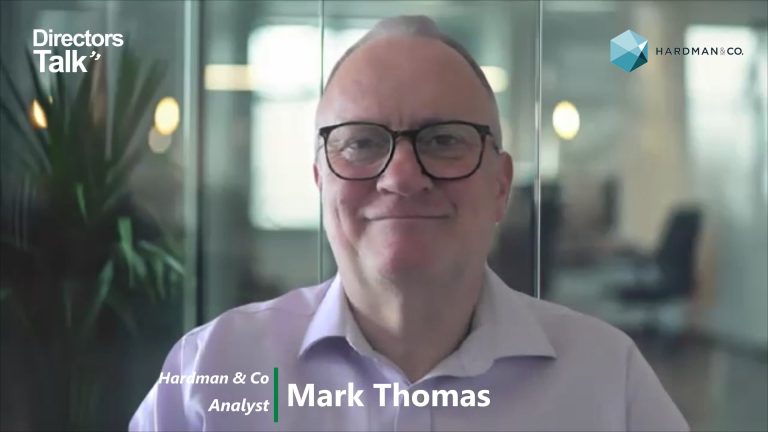Apax Global Alpha Ltd is the topic of conversation when Hardman and Co’s Analyst Mark Thomas caught up with DirectorsTalk for an exclusive interview.
Q1: Your recent report sits behind a disclaimer. What can you tell us about that?
A1: It is just the standard disclaimer that many investment companies have. In essence, for regulatory reasons, there are some countries (like the US) where the report should not be read. In the UK, because private equity (PE) is not a simple asset class, the report should be looked at only by professional/qualified investors.
Q2:You called your recent piece ‘Outperformance by adding value to companies’, what can you tell us about it?
A2: The full-year results to December 2022 reconfirmed the core strengths of Apax Global Alpha, notably
- The company enhances the operational performance of its investments ‒ revenue and EBITDA growth of 21.5% and 18.5%, respectively, are well ahead of the market,
- a 15% uplift on exits, proving conservative accounting and that the NAV is realistic,
- a -7.4% NAV return was driven largely by the listed holdings’ rating multiples fall (but these companies have already delivered 3.4x money on invested capital return),
- They took money off the table at the peak of the market in 2020-21, and as a consequence 2022 saw the Company being a victim of its success in IPOing in those peak years, and
- the Derived Investments portfolio proved its worth, with diversified, more stable returns, and generating cash to pay the dividend. The NAV should be resilient in uncertain times.
Q3: It was a results note so could you give us a few of the key numbers?
A3: There was a small fall in adjusted NAV, which, at end-2022, was 234p, against a current share price of 168p.
The EV/EBITDA ratio was 17.2x, which is in line with the underlying average for 2017-21, and it results in a PEG ratio of just 0.9x, well below the market level.
The dividend was 11.8p, which, on the current share price, gives a dividend yield of 7.0%, the highest in the sector, and making AGA attractive to both capital and income funds.
The debt/EBITDA ratio was 4.8x, against a PE average of 6x-7x.
Finally, over-commitment remains very modest.
Q4: And you expressed confidence in the NAV being real. What gives you that confidence?
A4: We explored why the valuation is real in great detail in our initiation note, ‘Making pearls out of oysters’.
The key factors continue, in particular, we emphasise the uplift on exit. At that stage, material due diligence is triggered, be it by a trade buyer, another PE fund or on IPO, after which buyers are still willing to pay a premium to value at which the investment is recognised in AGA’s books. While part of this may reflect deal synergies, the long-run average of around 30%, in our view, reflects more than this, and gives us confidence that the underlying valuation approach is conservative.
Other factors include i) a conservative corporate culture, ii) there is no incentive to over-inflate valuations, iii) the valuation multiples, and resulting PEG ratio, are relatively low, bearing in mind the sector mix, and companies showing similar sustained EBITDA growth, iv) technology companies are not all the same, v) AGA’s exposure to the unprofitable, venture stage, which has seen the most valuation volatility, is small, vi) the internal and external verification at both the Apax Funds and AGA levels.
Q5: And you touched on its unique Derived Investments portfolio. What did that bring in 2022?
A5: 2022 saw the benefits of the portfolio in diversifying returns, helping pay the dividend, reduced cash drag effects and outperforming the benchmark. 2023 will show its capital management advantages. The trust has a unique approach to liquidity with its Derived Investments portfolio, and a dividend yield that makes it attractive to both capital and income investors.
Q6: And what about the risk?
A6: Sentiment to costs, the cycle, valuation and over-commitment are sector issues. Residual risk on the 2020-21 IPO positions appears to be modest. The Derived Investments portfolio generates income towards dividends, and has liquidity and capital benefits, but it complicates the story.
Apax Alpha Global primarily invests in the Investment Adviser’s four key sectors: Tech & Telco, Services, Healthcare and Consumer.









































